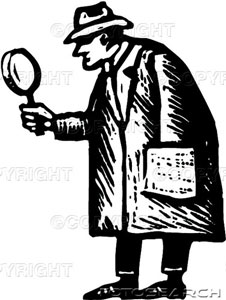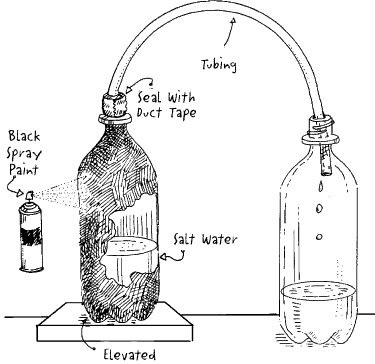





(I’ll be doing an interviewing workshop tonight at the Social Media Club in San Francisco. I thought I’d share at least a skeleton of my remarks and some links here. Please add your tips, tricks or questions below.)
I’ve always enjoyed talking to people and asking questions. Most opeople have stories to tell – provided you can get them talking. Important or powerful people pose different challenges as interview subjects. They tend to have their own messages to deliver; they’re adept at politely non-answering questions; and they can be intimidating. It’s not always clear who’s in charge of the interview.
There is no set formula for conducting an interview. They occur under far too many circumstances. But here are a few watchwords that should pertain to all interview situations; then I’ll talk about phone versus face-to-face, big muckety-muck versus just plain folks.

Background research is the key to a successful interview. Know your subject (online bios?); understand their point of view; be aware of any interest or stake they might have in the outcome; assess their authority and independence. This assumes you understand the context of whatever events in which the interview will take place (know of recent accomplishments, or looming challenges; these start conversations). Should you prepare questions? As a beginner, yes. For important people, yes (sometimes you’ll have to indicate the range of questions and that implies you’ll stay close to them — or else!). Even if you don’t create an actual list, you have to know what you want to accomplish.
Â

Whatever happens to be on your script, be sure to listen to what the subject says. Not just the words but the nuances, th signals that suggest there is more to be said. Sometimes subjects make you work for the knowledge. They offer clues and see if you will follow up. I often read back quotes to make sure I got them right, particularly when they are strong words; occasionally people will try to weaken them. But at other times I correct errors or get more precision and it also validates the quote before publication. (The Irv Renner anecdote as an example if a tough interview.)
Should you record interviews? I don’t generally but that’s because I’m not a touch typist and it takes me too long to transcribe. My bad. Even if you do record, however, take notes by hand. (Lander and the Genome).
Nowadays when you do record, podcasts become possible. My suggestion is to do the information interview first and then go back and do a brief re-interview for the podcast. It’ll be a lot easier than editing down an hour of tape. Also, if you do grab podcast audio, snap some digital pictures as well. People like to see who’s talking.

Distill your notes or recordings to capture the gist of each speaker’s point of view. Paraphrase to help explain the story. Choose quotes to illustrate the personality or drive home a main point. If you have a number of interviews in a long and complex story, you may find that multiple people say many of the same things. That’s good. But when (or if) you use any one person’s comments, look for what they may have said exceptionally well. Don’t repeat a bunch of same-sounding comments. Better to leave out some folks if they all sound alike.

Strive for balance in how you present the story. Be sure to get multiple points of view and represent the range of opinions and views. Don’t try to stack the deck. People can sense it and you loose them. Try to find people of equivalent weight and and authority.
Phone versus face to face: Most of my work is by phone but my best work is in person. When you have the time make the effort to meet the subject. People talk more freely and you learn more about them by asking about their surroundings. Whether on the phone or F2F try to assess your subject’s style and make yours complimentary. If they are great talkers, be a great listener. If they are shy, be outgoing.
Big shots versus little people: Important people can be intimidating. Protect yourself by being well prepared. Arrive early. Look the part. Be polite but not fawning. You are there to do a job not gush. Don’t get mszmerized. As your questions (often you will have to submit your questions in advance and it’s tough to deviate too far unless they lead you there). Make sure you get what you need. You have to tread a line between being a pushover and being rude.
Ordinary people deserve special handling. They don’t necessarily understand that you will quote them. You have to be very specific and patient. When I go out on the sidewalk for random interviews, I generally start with my business card and an introduction. But IÂ don’t immediately open my notebook and start taking notes. I try to get them talking and then say, “Is it okay if I takes notes?” Later I ask for their names. Occasionally they decline but most often they give me an I.D. And get a cell phone or day phone for follow up. Check and double-check sayings.
Â
Â